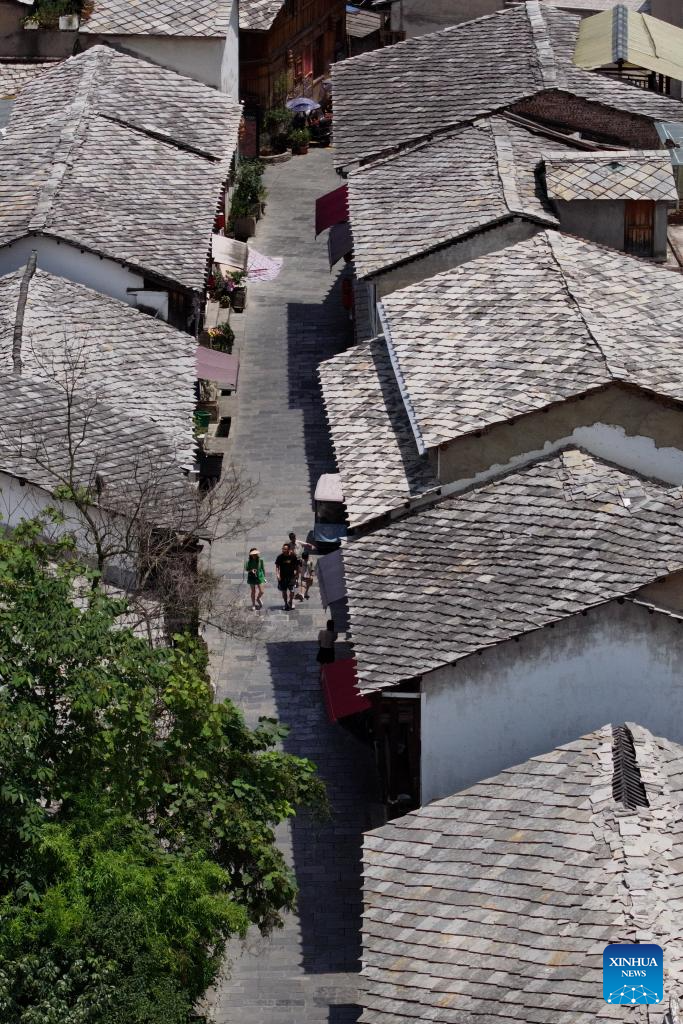
In this Teen Patti Goaerial drone photo, tourists visit Jiuzhou ancient town scenic area of Anshun City, southwest China's Guizhou Province, July 25, 2024.
Tunpu means "fort" in Chinese, referring to the complex of residential buildings in villages of Anshun built in the style of fortress for resisting the enemy's attacks in ancient times.
In the Ming Dynasty (1368-1644), some troops were sent to Anshun, where they built villages and cultivated land for farming. Their descendants have lived there over generations with their original living customs preserved. Thus the unique Tunpu culture has taken shape.
After more than 600 years, these stone-structured Tunpu residential buildings have endured and now become popular tourist destinations for many visitors. (Xinhua/Ou Dongqu)
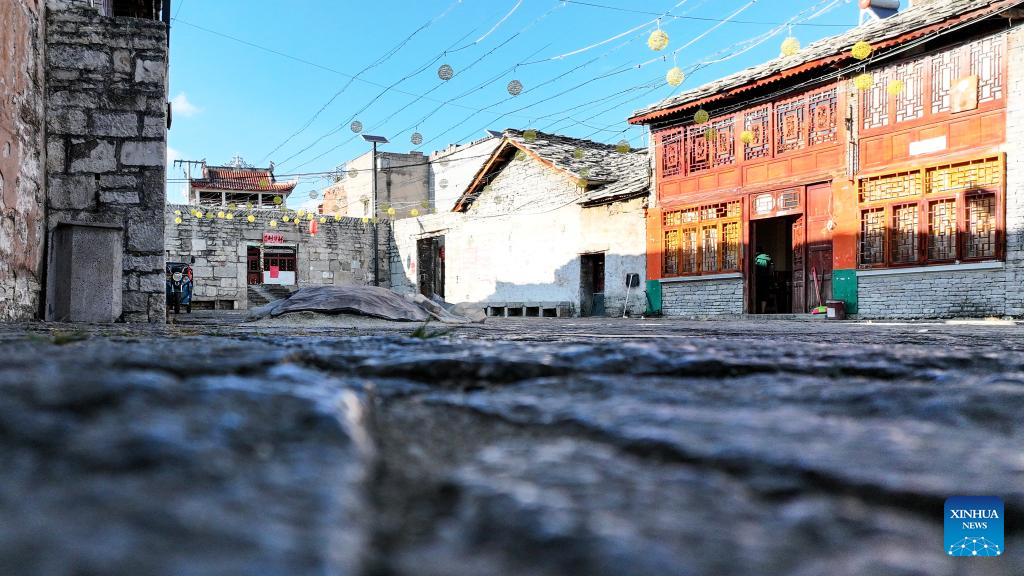
A drone photo taken on July 24, 2024 shows a view of Baojiatun Village in Xixiu District of Anshun City, southwest China's Guizhou Province.
Tunpu means "fort" in Chinese, referring to the complex of residential buildings in villages of Anshun built in the style of fortress for resisting the enemy's attacks in ancient times.
In the Ming Dynasty (1368-1644), some troops were sent to Anshun, where they built villages and cultivated land for farming. Their descendants have lived there over generations with their original living customs preserved. Thus the unique Tunpu culture has taken shape.
After more than 600 years, these stone-structured Tunpu residential buildings have endured and now become popular tourist destinations for many visitors. (Xinhua/Ou Dongqu)
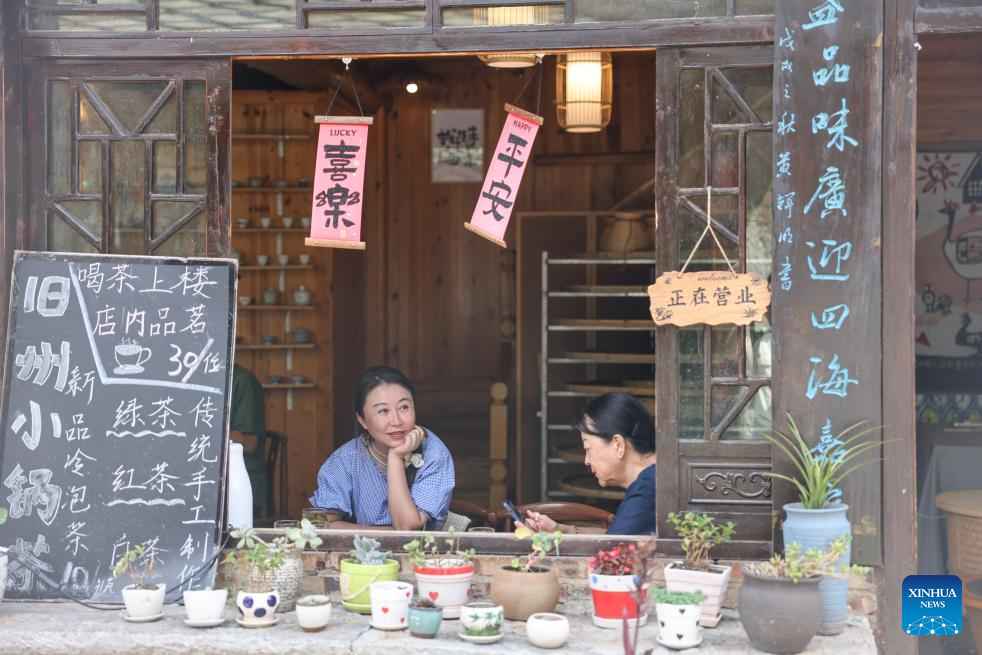
Tourists have tea at Jiuzhou ancient town scenic area of Anshun City, southwest China's Guizhou Province, July 24, 2024.
Tunpu means "fort" in Chinese, referring to the complex of residential buildings in villages of Anshun built in the style of fortress for resisting the enemy's attacks in ancient times.
In the Ming Dynasty (1368-1644), some troops were sent to Anshun, where they built villages and cultivated land for farming. Their descendants have lived there over generations with their original living customs preserved. Thus the unique Tunpu culture has taken shape.
After more than 600 years, these stone-structured Tunpu residential buildings have endured and now become popular tourist destinations for many visitors. (Xinhua/Ou Dongqu)
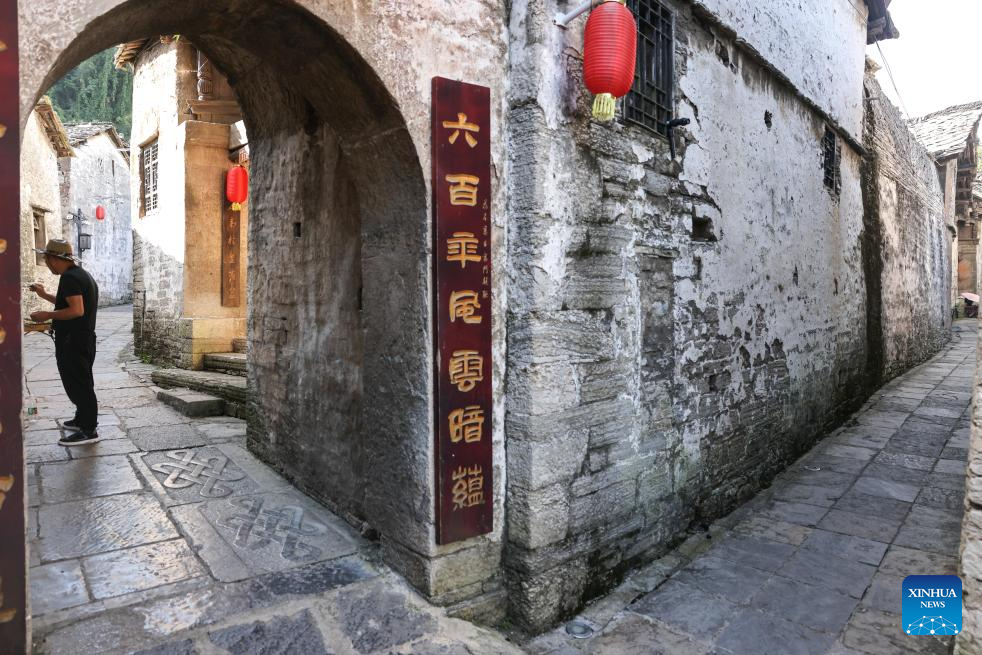
Lanes are pictured among stone buildings in Benzhai Village in Xixiu District of Anshun City, southwest China's Guizhou Province, July 23, 2024.
Tunpu means "fort" in Chinese, referring to the complex of residential buildings in villages of Anshun built in the style of fortress for resisting the enemy's attacks in ancient times.
In the Ming Dynasty (1368-1644), some troops were sent to Anshun, where they built villages and cultivated land for farming. Their descendants have lived there over generations with their original living customs preserved. Thus the unique Tunpu culture has taken shape.
After more than 600 years, these stone-structured Tunpu residential buildings have endured and now become popular tourist destinations for many visitors. (Xinhua/Ou Dongqu)
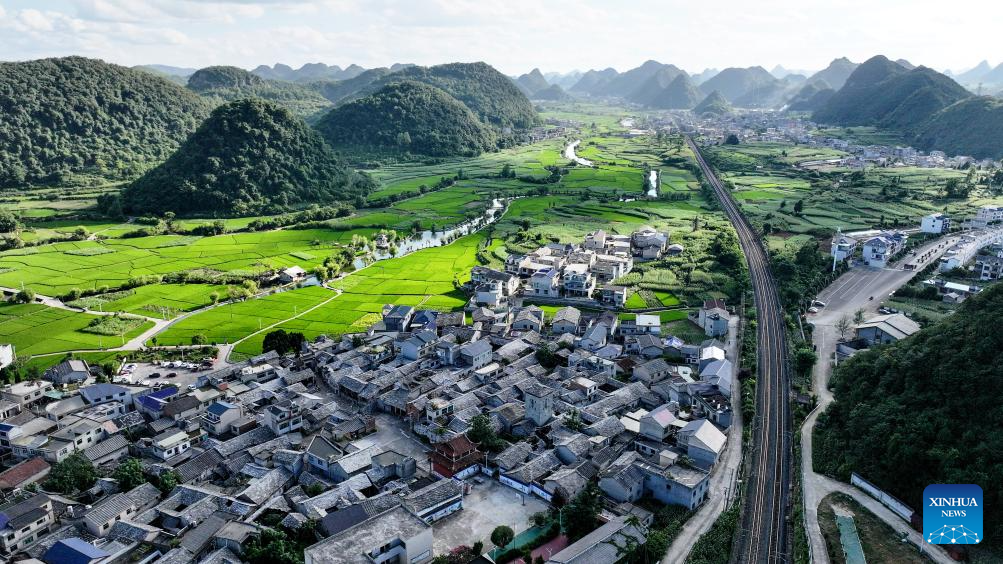
An aerial drone photo taken on July 24, 2024 shows Baojiatun Village in Xixiu District of Anshun City, southwest China's Guizhou Province.
Tunpu means "fort" in Chinese, referring to the complex of residential buildings in villages of Anshun built in the style of fortress for resisting the enemy's attacks in ancient times.
In the Ming Dynasty (1368-1644), some troops were sent to Anshun, where they built villages and cultivated land for farming. Their descendants have lived there over generations with their original living customs preserved. Thus the unique Tunpu culture has taken shape.
After more than 600 years, these stone-structured Tunpu residential buildings have endured and now become popular tourist destinations for many visitors. (Xinhua/Ou Dongqu)
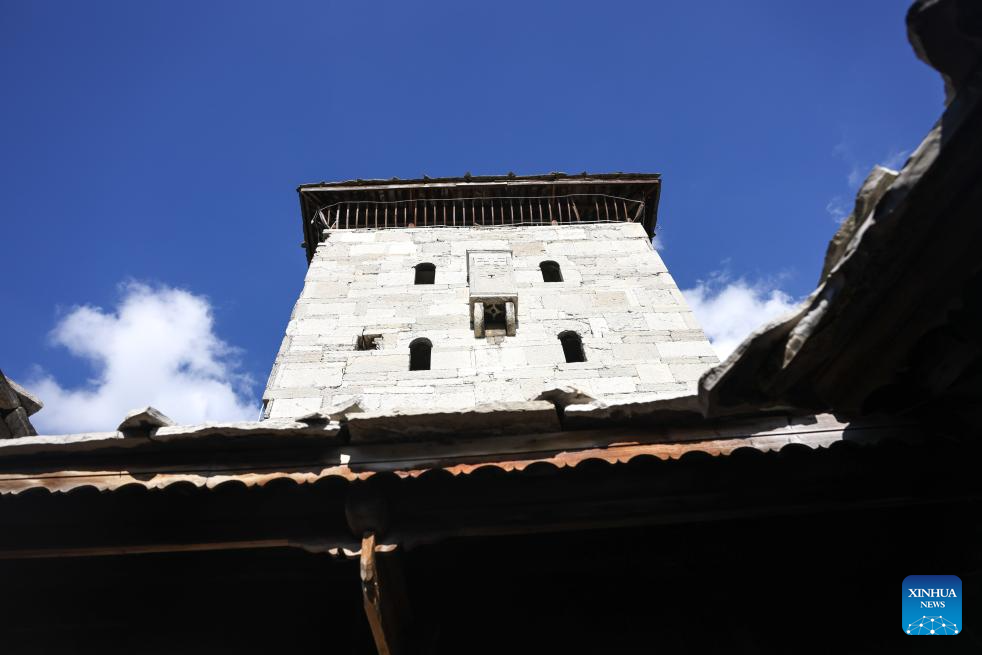
An ancient stone fortress is seen at Baojiatun Village in Xixiu District of Anshun City, southwest China's Guizhou Province, July 24, 2024.
Tunpu means "fort" in Chinese, referring to the complex of residential buildings in villages of Anshun built in the style of fortress for resisting the enemy's attacks in ancient times.
In the Ming Dynasty (1368-1644), some troops were sent to Anshun, where they built villages and cultivated land for farming. Their descendants have lived there over generations with their original living customs preserved. Thus the unique Tunpu culture has taken shape.
After more than 600 years, these stone-structured Tunpu residential buildings have endured and now become popular tourist destinations for many visitors. (Xinhua/Ou Dongqu)

An aerial panoramic photo taken with a drone on July 25, 2024 shows Jiuzhou Township in Xixiu District of Anshun City, southwest China's Guizhou Province.
Tunpu means "fort" in Chinese, referring to the complex of residential buildings in villages of Anshun built in the style of fortress for resisting the enemy's attacks in ancient times.
In the Ming Dynasty (1368-1644), some troops were sent to Anshun, where they built villages and cultivated land for farming. Their descendants have lived there over generations with their original living customs preserved. Thus the unique Tunpu culture has taken shape.
After more than 600 years, these stone-structured Tunpu residential buildings have endured and now become popular tourist destinations for many visitors. (Xinhua/Ou Dongqu)
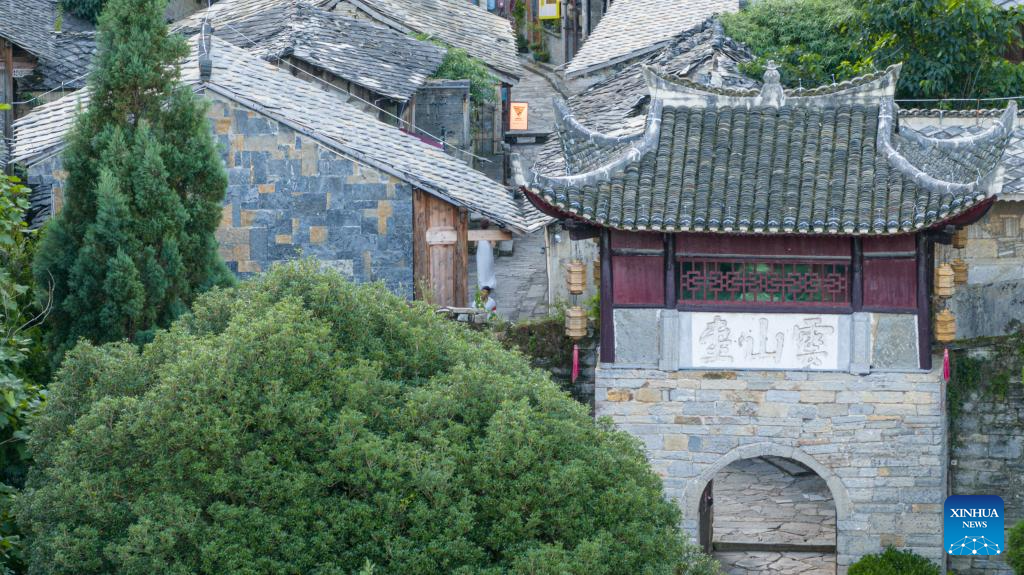
An aerial drone photo taken on July 23, 2024 shows a view of Yunshantun Village in Xixiu District of Anshun City, southwest China's Guizhou Province.
Tunpu means "fort" in Chinese, referring to the complex of residential buildings in villages of Anshun built in the style of fortress for resisting the enemy's attacks in ancient times.
In the Ming Dynasty (1368-1644), some troops were sent to Anshun, where they built villages and cultivated land for farming. Their descendants have lived there over generations with their original living customs preserved. Thus the unique Tunpu culture has taken shape.
After more than 600 years, these stone-structured Tunpu residential buildings have endured and now become popular tourist destinations for many visitors. (Xinhua/Ou Dongqu)
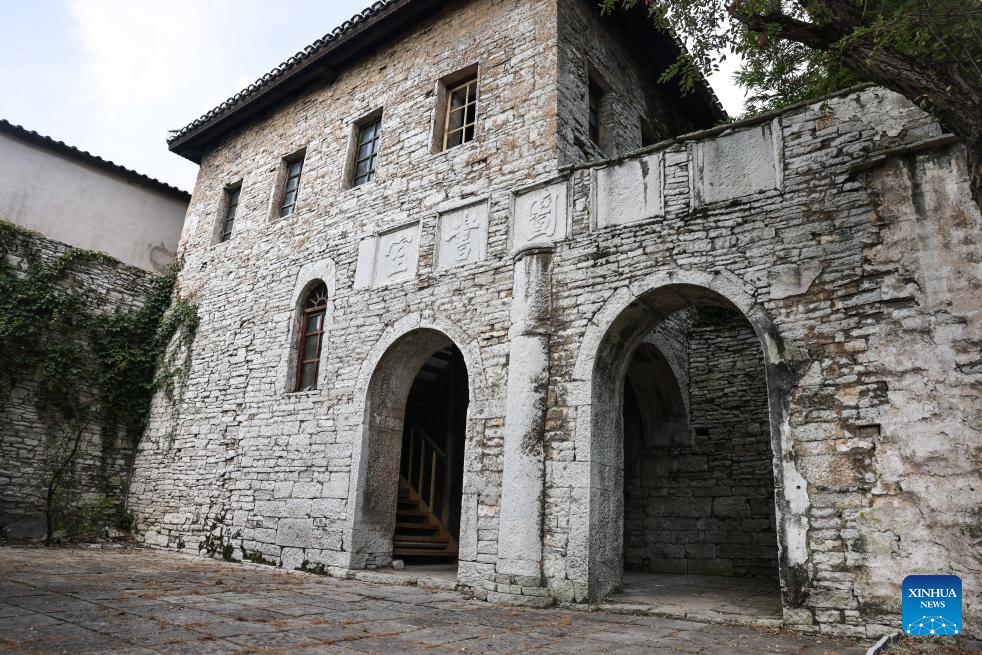
A stone building is pictured at an ancient town in Pingba District of Anshun City, southwest China's Guizhou Province, July 25, 2024.
Tunpu means "fort" in Chinese, referring to the complex of residential buildings in villages of Anshun built in the style of fortress for resisting the enemy's attacks in ancient times.
In the Ming Dynasty (1368-1644), some troops were sent to Anshun, where they built villages and cultivated land for farming. Their descendants have lived there over generations with their original living customs preserved. Thus the unique Tunpu culture has taken shape.
After more than 600 years, these stone-structured Tunpu residential buildings have endured and now become popular tourist destinations for many visitors. (Xinhua/Ou Dongqu)
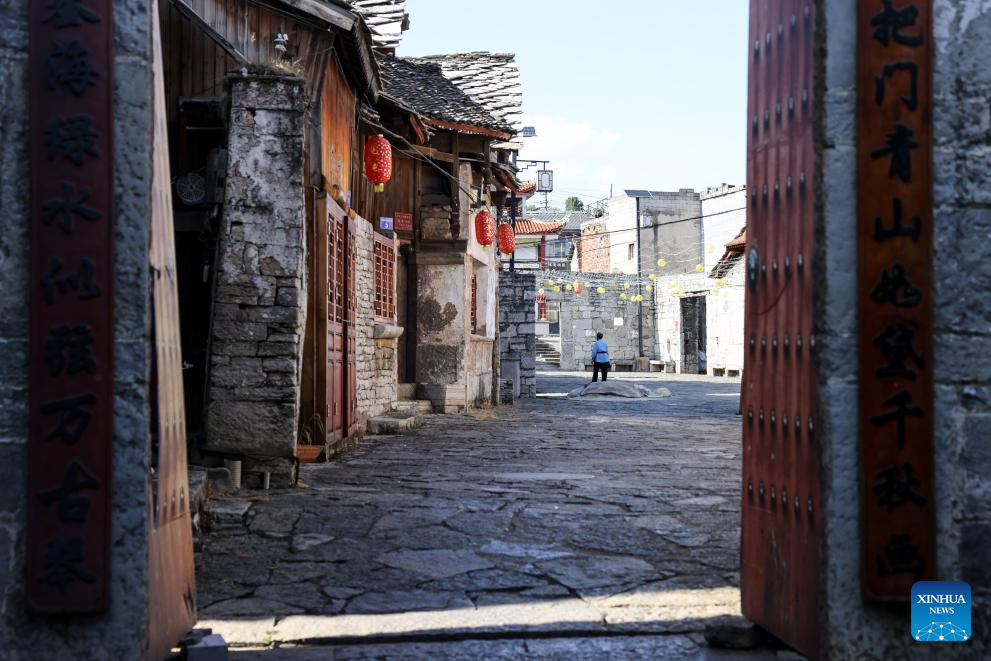
This photo taken on July 24, 2024 shows a view of Baojiatun Village in Xixiu District of Anshun City, southwest China's Guizhou Province.
Tunpu means "fort" in Chinese, referring to the complex of residential buildings in villages of Anshun built in the style of fortress for resisting the enemy's attacks in ancient times.
In the Ming Dynasty (1368-1644), some troops were sent to Anshun, where they built villages and cultivated land for farming. Their descendants have lived there over generations with their original living customs preserved. Thus the unique Tunpu culture has taken shape.
After more than 600 years, these stone-structured Tunpu residential buildings have endured and now become popular tourist destinations for many visitors. (Xinhua/Ou Dongqu)
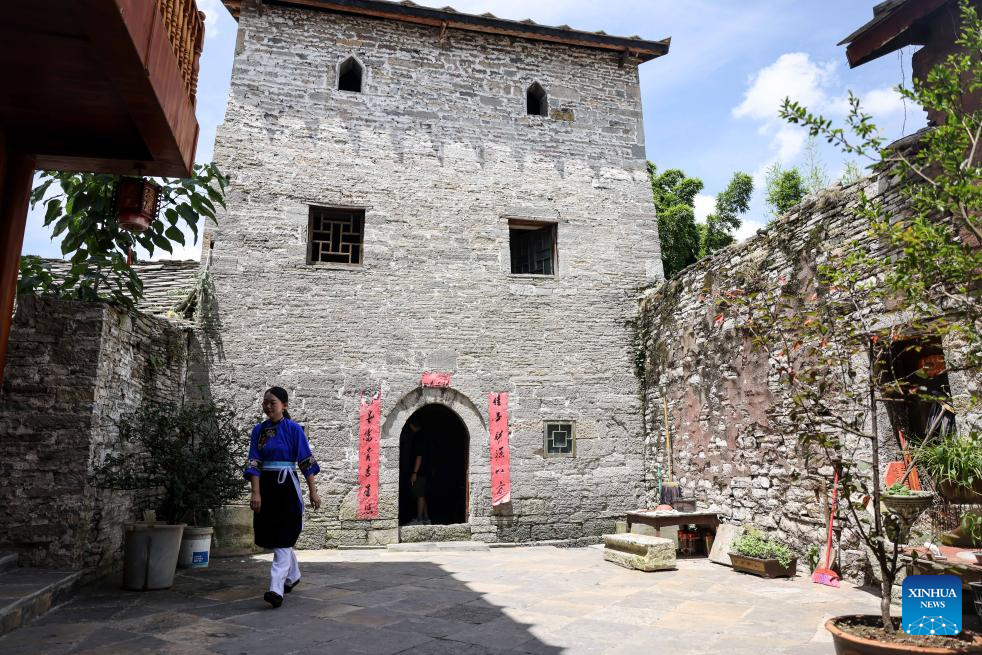
An ancient stone fortress is seen at Jiuzhou ancient town scenic area in Xixiu District of Anshun City, southwest China's Guizhou Province, July 24, 2024.
Tunpu means "fort" in Chinese, referring to the complex of residential buildings in villages of Anshun built in the style of fortress for resisting the enemy's attacks in ancient times.
In the Ming Dynasty (1368-1644), some troops were sent to Anshun, where they built villages and cultivated land for farming. Their descendants have lived there over generations with their original living customs preserved. Thus the unique Tunpu culture has taken shape.
After more than 600 years, these stone-structured Tunpu residential buildings have endured and now become popular tourist destinations for many visitors. (Xinhua/Ou Dongqu)
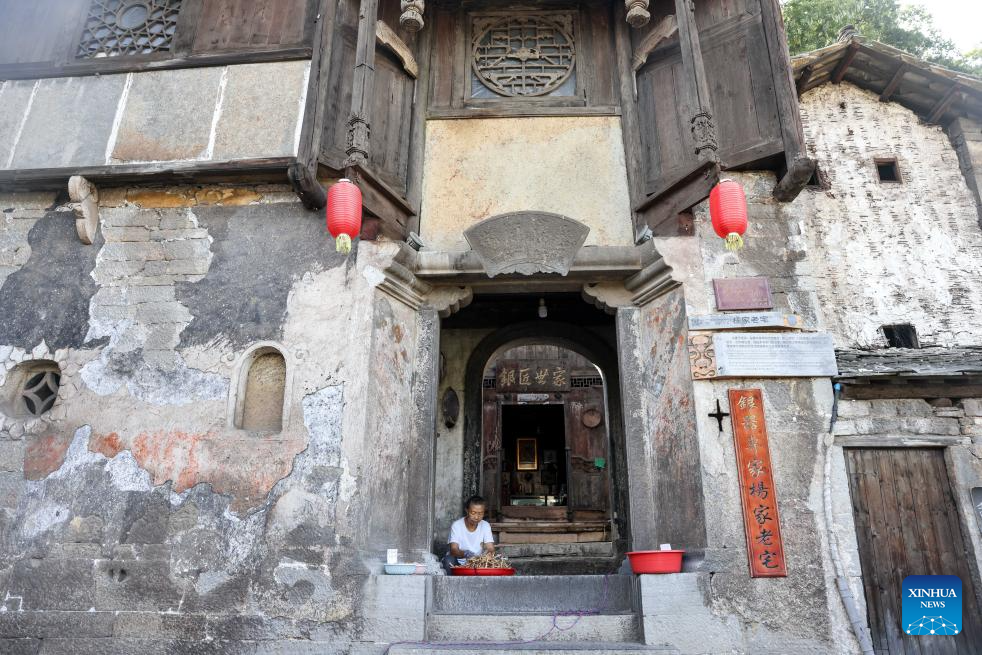
A resident is seen in a stone building in Benzhai Village in Xixiu District of Anshun City, southwest China's Guizhou Province, July 23, 2024.
Tunpu means "fort" in Chinese, referring to the complex of residential buildings in villages of Anshun built in the style of fortress for resisting the enemy's attacks in ancient times.
In the Ming Dynasty (1368-1644), some troops were sent to Anshun, where they built villages and cultivated land for farming. Their descendants have lived there over generations with their original living customs preserved. Thus the unique Tunpu culture has taken shape.
After more than 600 years, these stone-structured Tunpu residential buildings have endured and now become popular tourist destinations for many visitors. (Xinhua/Ou Dongqu)
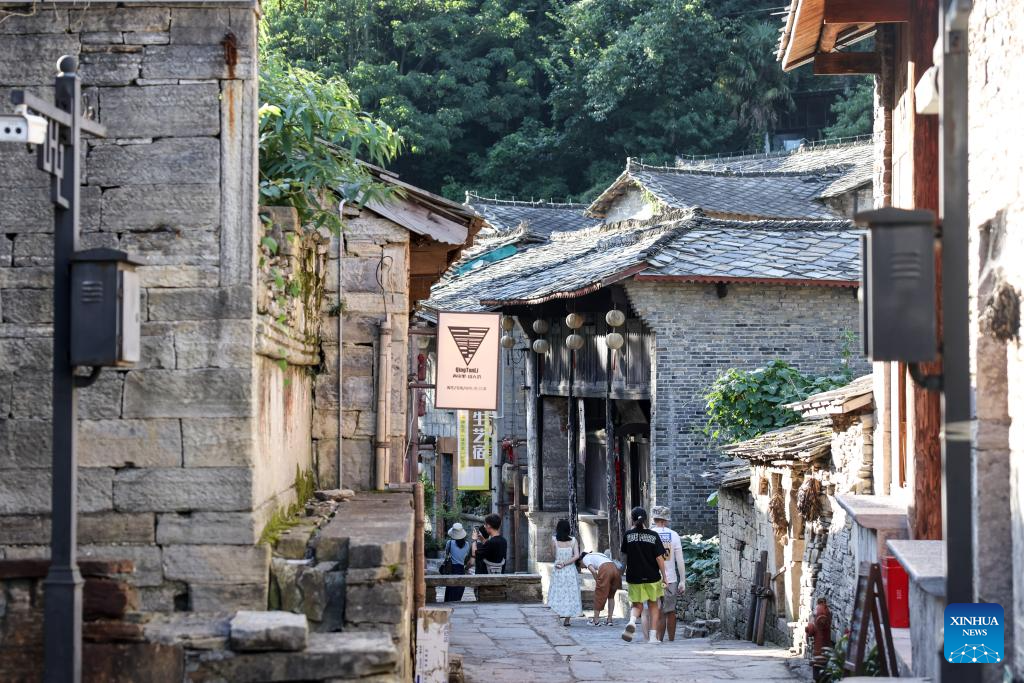
Tourists visit Yunshantun Village in Xixiu District of Anshun City, southwest China's Guizhou Province, July 23, 2024.
Tunpu means "fort" in Chinese, referring to the complex of residential buildings in villages of Anshun built in the style of fortress for resisting the enemy's attacks in ancient times.
In the Ming Dynasty (1368-1644), some troops were sent to Anshun, where they built villages and cultivated land for farming. Their descendants have lived there over generations with their original living customs preserved. Thus the unique Tunpu culture has taken shape.
After more than 600 years, these stone-structured Tunpu residential buildings have endured and now become popular tourist destinations for many visitors. (Xinhua/Ou Dongqu)
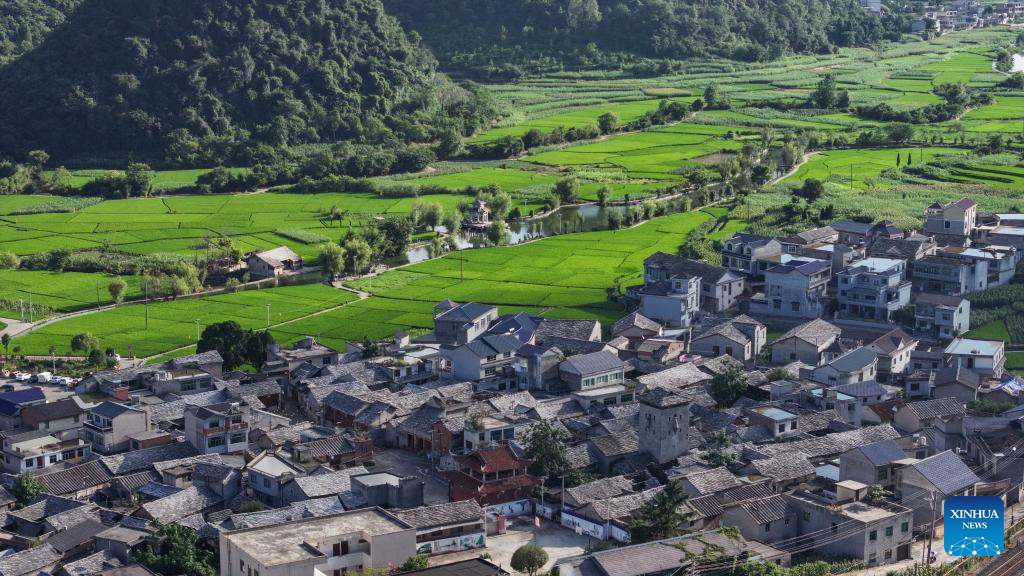
An aerial drone photo taken on July 24, 2024 shows Baojiatun Village in Xixiu District of Anshun City, southwest China's Guizhou Province.
Tunpu means "fort" in Chinese, referring to the complex of residential buildings in villages of Anshun built in the style of fortress for resisting the enemy's attacks in ancient times.
In the Ming Dynasty (1368-1644), some troops were sent to Anshun, where they built villages and cultivated land for farming. Their descendants have lived there over generations with their original living customs preserved. Thus the unique Tunpu culture has taken shape.
After more than 600 years, these stone-structured Tunpu residential buildings have endured and now become popular tourist destinations for many visitors. (Xinhua/Ou Dongqu)
Editor: JYZ